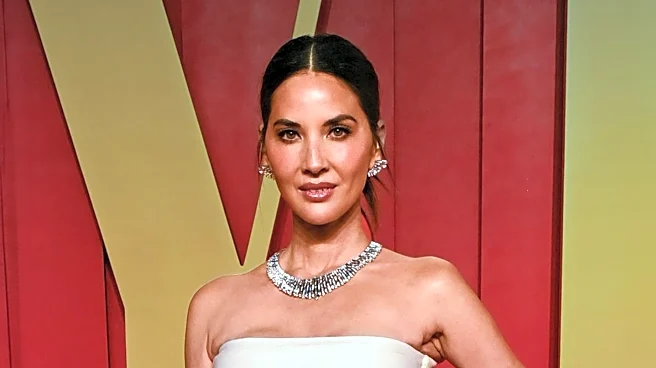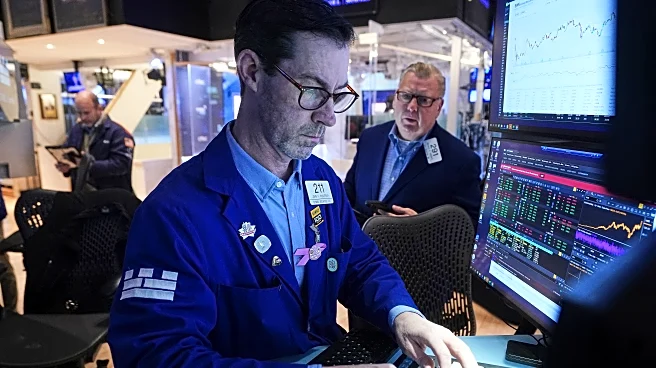What's Happening?
Olivia Munn, known for her roles in films such as 'X-Men: Apocalypse,' has publicly shared her experience with trichotillomania, a mental health condition characterized by compulsive hair-pulling. During an appearance on the 'Armchair Expert' podcast, Munn described the condition as involving irresistible urges to pull out hair from various parts of the body, including the scalp and eyebrows. She recounted that the onset of her condition was triggered by an incident involving paparazzi during her relationship with actor Chris Pine. Munn has been open about her health challenges, including a diagnosis of Luminal B breast cancer in 2024, which led to a double mastectomy and a hysterectomy as part of her treatment.
Why It's Important?
Munn's disclosure brings attention to trichotillomania, a condition that is often misunderstood and stigmatized. By sharing her story, she helps raise awareness about mental health issues, encouraging others who may suffer in silence to seek help. Her openness about her cancer diagnosis and subsequent treatments also highlights the importance of discussing women's health issues and the personal decisions involved in managing serious health conditions. Munn's experiences underscore the broader societal need for empathy and understanding regarding mental and physical health challenges.
What's Next?
Munn's revelations may prompt further discussions on mental health awareness, particularly regarding conditions like trichotillomania. Her story could inspire advocacy for better mental health support and resources. Additionally, her experiences with cancer treatment may lead to increased dialogue about women's health options and the impact of medical decisions on personal and family life. Stakeholders in healthcare and mental health advocacy might use Munn's story to push for more comprehensive support systems.
Beyond the Headlines
Munn's story highlights the intersection of celebrity culture and personal health struggles, illustrating how public scrutiny can exacerbate mental health conditions. It also raises ethical questions about privacy and the impact of media coverage on individuals' well-being. Her decision to speak out may encourage other public figures to share their health journeys, potentially leading to a cultural shift in how health issues are perceived and discussed.










